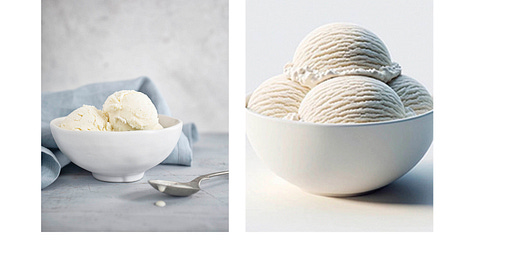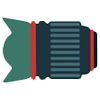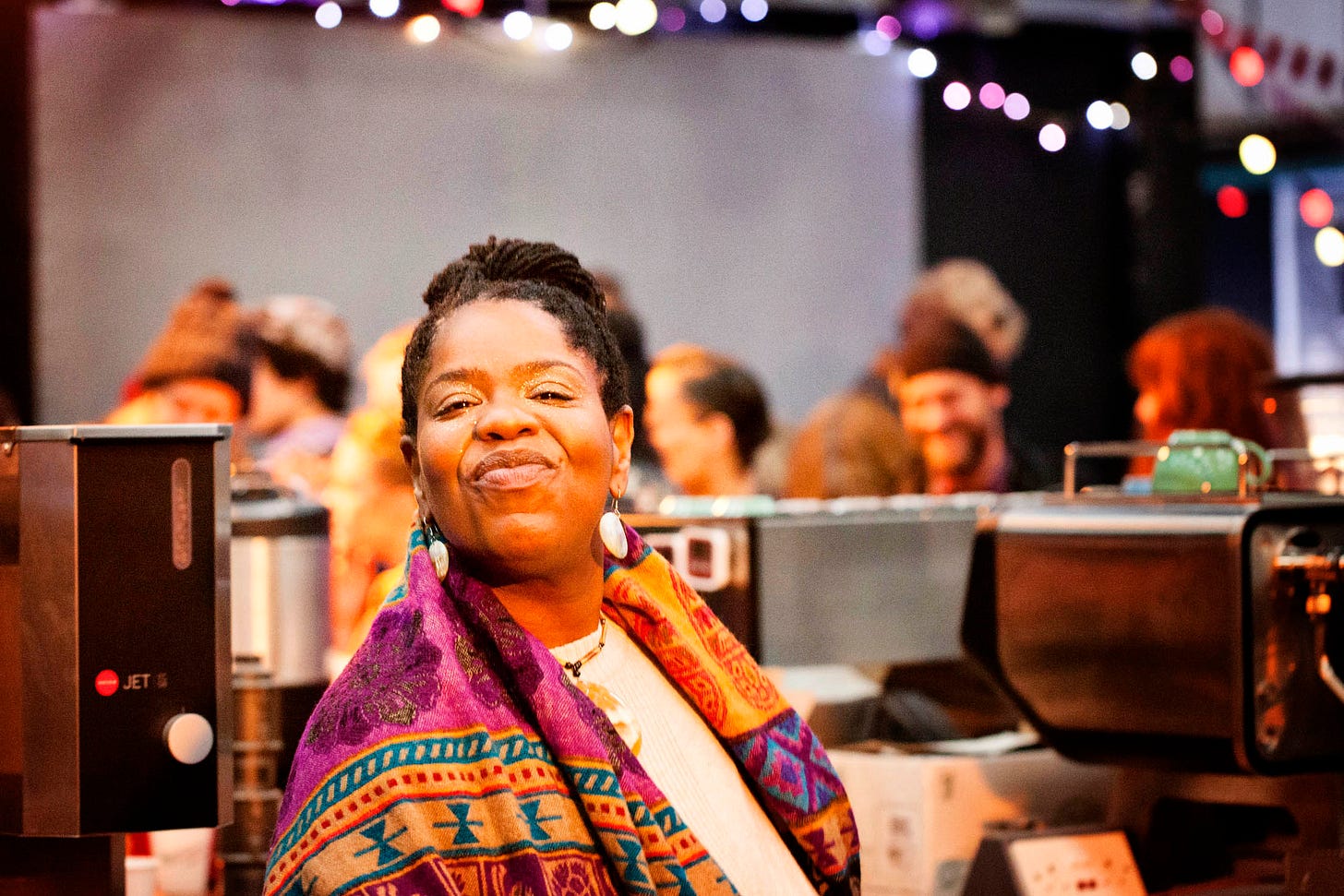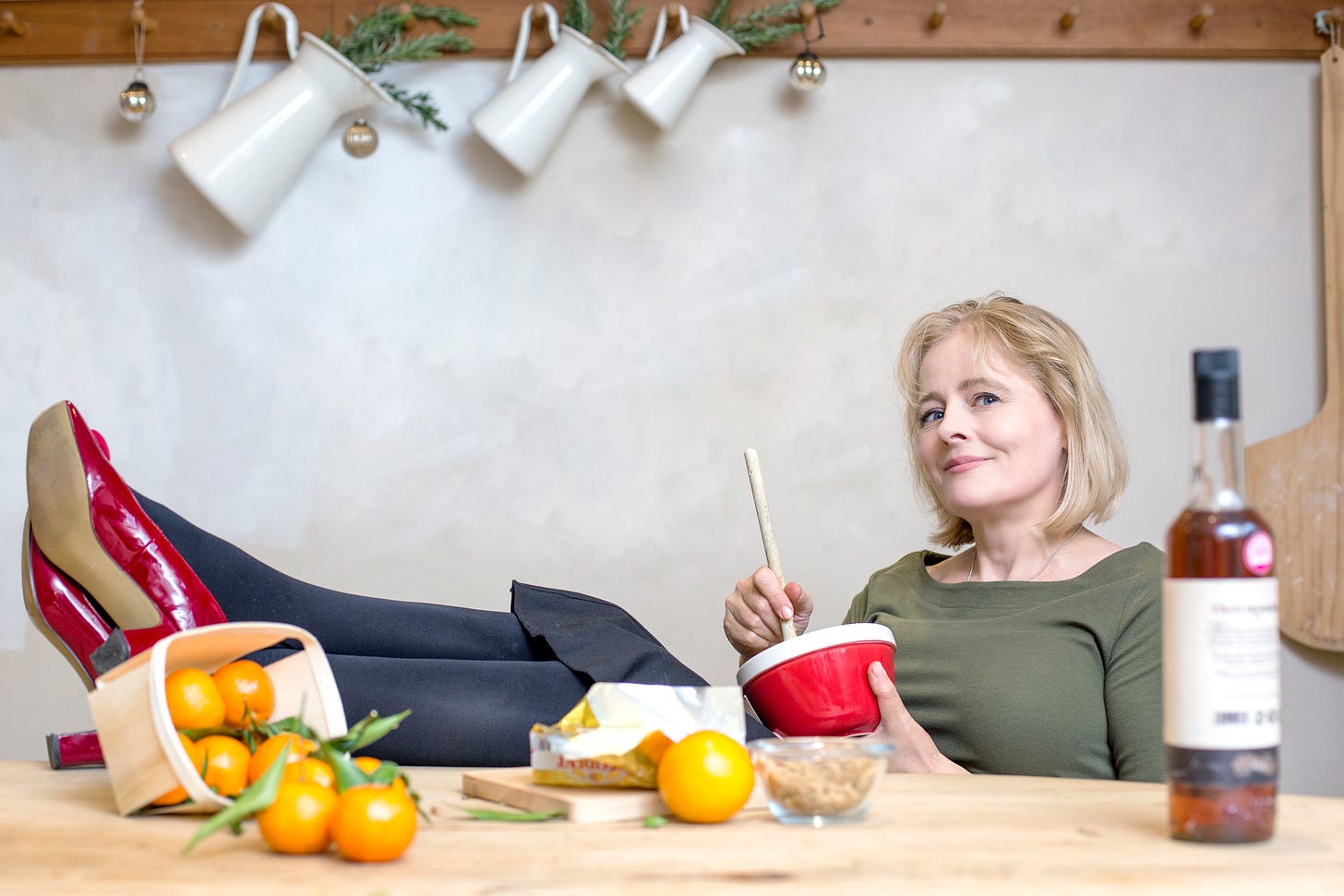In the 80’s film, 1“The Terminator”, director James Cameron explores the themes of technical domination, and the fear of being made irrelevant by artificial intelligence. It’s a film that many people of my, ahem, vintage, refer to a lot in this age of AI, where the chilling message of that film is very much becoming a reality now.
I spent this morning getting through some general life admin jobs while listening to the Podcast 2“Diary of a CEO”. The host, Steven Bartlett was chatting to three experts about the potential vs. threat of AI. He posed the question with a panic inducing tagline of “Will AI replace God, steal your job, and change your future”. It was a hard listen, and did nothing to help my Terminator-based anxiety that “You are obsolete”.
My eye vs AI ©KirstieYoung
I am already far too aware of how swiftly AI is disrupting creative industries, but I wanted to woman up and try to understand the best and worst case scenarios - as a creative, a parent, and someone who values critical thinking, and human connection waaaaaay above efficiency and automation. I don’t want to imagine a life without these things, yet like so many of us I feel powerless, and I wanted to address that head on by exploring the good, the bad and the ugly of it all.
AI generated “photo shoots” are everywhere, and while the photo-generation side of things in still in it’s infancy, this landscape is changing faster than anyone predicted. I wanted to explore what that means for someone like me. Better the devil you know, and all that.
“Moving faster than a DeLorean at 88 miles per hour”
Back to the Future 1985
For photographers, Stock Photography used to be the main creative battleground - a place where individuality was flattened and images were generic. And although that was frustrating, at least a photographer was being paid for the photograph, even if the income was tiny.
In 2025, Stock Photography has been been almost entirely eclipsed by AI generated images, with the ironic twist being that the creators whose work helped train these systems aren’t seeing a penny. AI companies and tech platforms are remixing other peoples greatest hits and keeping all the royalties. And worse - traditional stock image sites like Shutterstock and Getty are partnering with AI companies to offer generated images and quietly phasing out human-created stock, as some brands opt for AI “models” and AI generated lifestyle scenes. The future is very much here, and with it some ethical and copyright boundaries have been right royally buggered.
Just the idea of writing this piece was frightening to me. It felt - however ridiculous this sounds - like I might be prompting clients to look into using AI images when otherwise might not have. As if by not talking about the monsters in the cupboard they would cease to exist. But unlike the bogey man, ignoring this isn’t going to make it go away, so instead I’ve been thinking about what AI can’t capture, and why the job of a photographer is still relevant.
Morning Extract Coffee Rave ©KirstieYoung
I sometimes get commissioned to photograph events, retreats, gatherings and pop ups. Those joyful happenings where people are at their most present, connected, and beautifully unguarded - exactly where the real stories live. The skill of capturing the spontaneity, the human interactions, and the essence of the events is just not replicable by AI.
Portrait of Food Writer Xanthe Clay ©KirstieYoung
I also shoot portraits. And yes, there are SO MANY Tech platforms that offer to create or rather “generate”, professional headshots. They are everywhere. But even beyond the obvious issue of the creepy mannequin results they produce, there are so many bigger issues with this. There’s no authenticity to the image, in fact there’s an immense amount of dishonesty to them. These platforms superimpose your head onto a body that isn’t yours, in clothes that you don’t own. They smooth your skin to get rid of wrinkles, erase imperfections, drop a few cms from your waistline and this raises a huge ethical question about who gets to say what “perfect” looks like.
Hiring a Photographer means they will get to know you, form an emotional connection with you, and art direct you into a shot that represents how you want to show up in the world. It’s a collaboration rooted in trust that’s a far cry from the empty AI version.
Shot for Jenny Chandler’s Cookbook “GreenKidsCook” ©KirstieYoung
Most of my work is shooting food and drink, and increasingly I have clients who will openly admit that they tried programming the brief into AI before contacting me, but that it wasn’t “quite right”. Unpacking that statement is really simple. Food is about connection - to people, culture and often, nostalgia. Real food isn’t flawless, and it takes genuine human skill to craft imperfections that feel authentic and place them in a scene that feels relatable. A food shot is about so much more than the food - it’s the decisions you make about everything from the plate and the colour palette, the setting and the mood, to the story of the ingredients and the hands that make it, and that’s before you even get to the technical challenges of lighting and camera settings.
Honestly, despite knowing the value we bring, there isn’t a photographer I talk to who isn’t feeling unsettled by the rise of AI. And having listened to the Diary of a CEO Podcast this morning, I realise that feeling of anxiety must resonate with at least 50% of the population across a whole variety of industries. It’s impossible to anticipate how much we’ll all have to pivot in our jobs and our lives to stay relevant and gainfully employed - AI is essentially a new species and it seems nobody can predict what’s going to happen.
Personally, I’m in a constant tug-of-war between my heart and my head. My heart is staying grounded, and true to my creative aesthetic but my head’s feeling the pressure to adopt every new tool in the AI space to stay relevant.
I think where I land is that, if it’s used thoughtfully, for a small part of my photography business, then AI can be a powerful time saving tool. I’ve used it really successfully for planning and moodboarding. I’ve also used it to generate captions and headlines for social media posts. But the key for me is to be curious, but cautious. To explore it with an open mind and one foot on the brake so that it’s used as a tool and not a replacement.
I’m often asked “What Camera and lens do you use” and while I understand the curiousity, there’s an underlying assumption that the quality of an image comes down to the gear. For me, it will always be about the human touch, the person behind the photograph, the painting, the illustration or the writing.
The world is oversaturated not only by AI but also by AI hype. Headlines like doom mongering foghorns shouting “AI replaces creatives”, but not everything demands a response. It’s OK to make a decision to adapt only where it makes sense, to not “train” my creativity to mirror an algorithm, and to remember that choosing not to react is as legitimate as it always was..
Thanks for reading Lens Soup. If you found this post helpful then drop me a comment about how you are dealing with AI.
Have a great week.
I do love writing these posts, but would love to reach a wider audience and so if you have enjoyed this one and found it useful I would absolutely love you to please share it:
add a comment:
or become a paid subscriber for less than a £1/week (hitting the button does not commit you to anything, it simply takes you to the options)
Thanks for reading! If you enjoyed it, do please share this with your friends
The Terminator (1984) is a sci-fi action film about a cyborg assassin (The Terminator) sent from the future (2029 …) to kill Sarah Connor, a young woman whose unborn son will lead the resistance against a future AI-led apocalypse. I mean …











Thanks for articulating all this so clearly
Having commissioned you to shoot various events and my first ever professional headshots, I wanted to let you know you’re irreplaceable. Festivals only looked as good as they did because of your ability to capture a moment, an atmosphere or a vibe. My headshots were the first time someone made me feel that I could ‘look good’ in photos. What you do goes far beyond the end product. It’s culmination of things, including how you make people feel. AI can never replace what it means to be human 💛